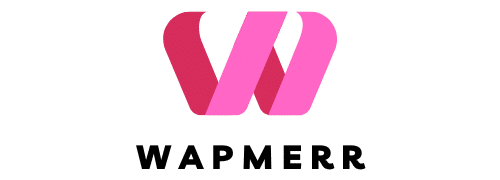The world has become smaller due to modern transportation technologies, enabling business travelers to traverse across different time zones with relative ease. However, such convenience doesn’t come without consequences. One of the most common predicaments international business travelers face is jet lag – a syndrome caused by the disruption of the body’s internal clock. This article will dive into the best strategies to help recover from jet lag and keep you at your most productive during your business travels.
Understanding Jet Lag and its Impact
Before delving into strategies to tackle jet lag, it’s essential to understand what it is and how it affects your body and overall health. Jet lag, also referred to as time zone change syndrome, is a physiological condition that results from alterations to the body’s circadian rhythms caused by rapid long-distance trans-meridian (east–west or west–east) travel on high-speed aircraft.
Dans le meme genre : How Does Frequent Use of Virtual Reality Affect Physical Fitness and Spatial Awareness?
Jet lag can result in various symptoms such as daytime fatigue, trouble concentrating, stomach problems, mood changes, and general feeling of being unwell. But beyond the physical discomfort, jet lag can also impact your mental acuity and business performance. It is, therefore, crucial for business travelers to manage and overcome jet lag for optimal health and productivity.
The Power of Light in Regulating Circadian Rhythms
The first step towards managing jet lag is understanding the power of light and how it affects your circadian rhythms. Your body’s internal clock, or circadian rhythm, is a complex system that regulates a multitude of physiological processes, including sleep-wake cycles, hormone production, and metabolism.
A découvrir également : What Are the Advantages of Outdoor Exercise Equipment in Public Parks for Community Health?
Light exposure is the most potent regulator of the circadian clock. Morning light exposure helps reset your body’s clock to the new time zone, while limiting light exposure in the evening can also help your body adjust. Understanding when to seek or avoid light can provide a powerful tool for adjusting to a new time zone and overcoming jet lag.
Melatonin Supplementation: A Potential Jet Lag Remedy
Melatonin is a hormone produced by your body that helps regulate sleep-wake cycles. It’s stimulated by darkness and suppressed by light, making it a vital player in your circadian rhythm. Therefore, using melatonin supplements can help adjust your body clock to a new time zone.
Though medical professionals suggest consulting a healthcare provider before starting any supplement regimen, research suggests that taking melatonin close to the target bedtime at your destination (10 pm to midnight), starting a few days before your trip and continuing for several days upon arrival, can lessen the effects of jet lag.
The Role of Healthy Habits and Lifestyle Choices
Lifestyle choices and maintaining healthy habits play a significant role in managing jet lag. Regular exercise helps reset the body’s clock and improve sleep. However, it’s best to avoid vigorous exercise close to bedtime as it can interfere with sleep.
Proper nutrition also has an impact on your sleep patterns. Try to avoid heavy meals, caffeine, and alcohol close to bedtime. Instead, opt for light, nutritious meals that will not disrupt sleep.
The Effectiveness of Strategic Sleeping and Napping
Finally, strategic sleeping and napping can significantly aid in overcoming jet lag. It’s beneficial to adjust your sleep schedule to the new time zone a couple of days before traveling. This will give your body a head start in adjusting to the new sleep-wake cycle.
On arrival, try to sleep at the local bedtime, even if you’re not tired. Short naps can also be beneficial to counteract fatigue during the day, but be wary of long naps as they can disrupt your sleep at night.
In conclusion, jet lag is an uncomfortable, often frustrating side effect of long-distance travel. However, by understanding its roots in the disruption of the body’s natural circadian rhythms and implementing targeted strategies such as light exposure management, melatonin supplementation, maintaining healthy habits, and strategic sleeping can help mitigate its effects. This will not only ensure your health is maintained, but also that your business performance remains at its peak.
Light Therapy: A Modern Approach for Jet Lag Recovery
Delving further into the concept of light exposure, we can explore the concept of light therapy as a modern approach to counteract jet lag. Harnessing the power of light exposure, this treatment involves exposure to specific wavelengths of light for a prescribed amount of time at certain times of the day.
A trusted source like PubMed NCBI (National Center for Biotechnology Information) provides access to scientific literature supporting the effectiveness of light therapy in adjusting circadian rhythms. It can help to stimulate alertness and cognitive performance during the day and enhance sleep quality during the night.
Light therapy devices, such as light boxes, simulate daylight that’s believed to affect brain chemicals linked to mood and sleep, effectively resetting your body’s internal clock. This therapy is often used as a treatment for conditions like seasonal affective disorder (SAD) and certain other conditions. For jet lag, the timing of light therapy is critical and depends on the direction of travel and the number of time zones crossed.
Light therapy, however, isn’t for everyone. Certain people with specific medical conditions or who take certain medications may need to avoid it. Consulting with a healthcare provider is always recommended before starting any new treatment regimen.
Utilizing Technology: Gadgets and Apps for Jet Lag Recovery
In this age of biotechnology advances and digital convenience, another strategy to combat jet lag is through the utilization of technology. Gadgets and apps have been developed specifically to aid in resetting circadian rhythms and helping business travelers adjust to new time zones.
Sleep tracking gadgets have become increasingly popular. These devices track your sleep patterns, providing a genomic view of your sleep-wake cycle, which can be beneficial in understanding your personal circadian rhythm. Using this information, these devices can make personalized recommendations, such as the optimal time for you to sleep and wake up, to help manage jet lag.
Moreover, there are apps designed to help with jet lag recovery. These apps use scientifically backed algorithms based on the information you provide, such as travel dates, departure, and destination time zones, to provide personalized jet lag plans. These plans include light exposure recommendations, a sleep schedule, and even when to take melatonin supplements.
Conclusion: A Proactive Approach to Jet Lag Recovery
In the final analysis, jet lag is an enduring issue for international business travelers. While it may be a nuisance, understanding its causality—disruption of the body’s circadian rhythms—can provide the foundation for effective management strategies. From light exposure manipulation and melatonin supplementation to maintaining consistent healthy habits and strategic sleeping to innovative approaches like light therapy and tech aids, there are measures that can be taken to mitigate its impact.
However, it’s crucial to remember that everyone’s body reacts differently to time zone changes, and what works for one person may not work for another. Therefore, it’s always recommended to consult with a healthcare provider before starting any new routine or treatment regimen.
Remember, the goal is not just to recover from jet lag, but to maintain peak performance during your business travels. As advances in science, health, and technology continue to progress, so too will the strategies for combating jet lag. But for now, these tips can serve as a starting point for managing and overcoming this common issue in the world of international business travel.






